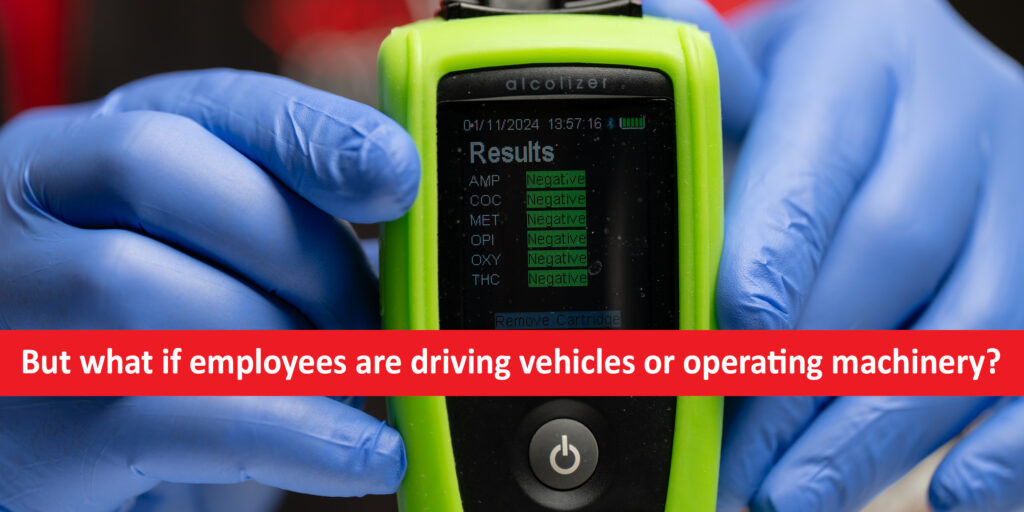
Fit for duty, also known as fitness for work, means an employee is in a state that allows them to perform their job duties safely and competently without putting themselves or others at risk.
The concept of fitness for work is broad and deals with the relationship between an employee and their ability to do their role in the job safely and competently. This goes beyond qualifications and experience – fitness for work deals with ‘individual’ factors such as the effect of fatigue, alcohol and/or other drug use, medical fitness (if required for a specific role) and mental health and wellbeing.
General duty of care
Employers and employees have responsibilities in regard to fitness for work with a general duty of care to maintain a safe and healthy workplace and protect people at work from hazards.
An employee needs to ensure their own health and safety at work (ie not turning up to work impaired by the consumption of alcohol) by negatively affecting the safety and health of others (ie poor decision making while under the influence of alcohol may put work colleagues at risk).
An employer, has a responsibility to maintain a working environment in which, as far as is practicable, workers are not exposed to hazards (ie work arrangements are appropriate to manage fatigue).
In 2016, when legislation changed to enable authorised medical practitioners to legally prescribe medical cannabis, it has left some employers confused about their workplace safety obligations. To maintain a working environment which as far as is paticable, workers are not exposed to hazards… what if employees are driving vehicles or operating machinery?
As leaders in drug and alcohol testing solutions our recommendations for workplace safety and prescribed medications include:
- Remember – where a person has used or intends to use prescription or over the counter drugs, it is the responsibility of that person to ensure that the drug in question will not cause any impairment that may adversely affect the safety and health of themselves or any other workers in the workplace. All personnel must declare the use of any prescribed or non-prescribed medication that can potentially impair that person’s ability to perform their normal duties.
- If an employee is taking prescribed medical cannabis, and it is reasonable in the circumstances (ie they need to operate machinery), employers can request the employee to provide evidence from their medical practitioner that the employee is fit to perform their duties. This is normally in the form of a medical certificate, stating the employee’s prescription, whether they are fit to perform their duties, and any limitations on their duties (ie employee cannot drive a vehicle or operate machinery within 12 hours of taking the prescribed medical cannabis).
- Where a medical certificate is supplied, employers must review and determine whether the employee can perform the requirements of their role. When undertaking this process, consider anti‑discrimination legislation, workplace policies, their employment contract and relevant industry legislation relevant to their role.
- There are risks associated with dismissing an employee for taking medical cannabis in the workplace without determining whether the employee is fit for work including unfair dismissal and discrimination. Employers may be able to commence a disciplinary process if an employee refuses to comply with a lawful and reasonable direction (ie refusing to provide evidence that they are fit for work), is unable to perform the inherent requirements of their role or contravenes a term of their employment contract or a workplace policy or procedure.
- Regardless of whether an employee is taking medical cannabis or other prescribed medications, employers should obtain up‑to‑date medical evidence of the employee’s fitness for work when determining whether the employee can perform the requirements of their role and when considering reasonable adjustments.
- Always ensure drug and alcohol policies and procedures are kept up to date and enforced consistently across your whole workplace.
- Communication and training are essential in workplace drug and alcohol testing. Our product and industry training and education allows customers to have an extensive understanding of Drug and Alcohol testing in the workplace. We offer nationally recognised training as well as certified operator and familirisation training – view our training available here.
If you would like some advice or guidance in relation to workplace drug testing or particularly in managing medical cannabis in the workplace our team can be contacted here.
